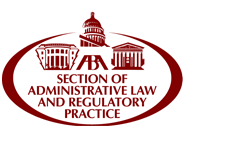Article Title
The Application of Antitrust to Public Companies' Disclosures
Volume
63
Issue
1
First Page
159
Abstract
The business culture for public companies demands transparency and openness. Investors and securities analysts demand information so that they can assess the strengths and weaknesses of a company. Underlying the securities laws is a policy that encourages full disclosure and information to the investing public. The Internet and other technology provide instant access and, more importantly, an almost limitless depth of historic statements and information.
Faced with this culture, executives are counseled to be open about business strategies. However, this new openness has created new issues. Public disclosures made in the context of conference calls with securities investors and analysts (Investor Calls or Calls) have recently become an area of focus for both antitrust plaintiffs and the government. Faced with more rigorous pleading standards after Bell Atlantic Corp. v. Twombly and Ashcroft v. Iqbal, plaintiffs have scoured transcripts of Investor Calls to find support for claims that defendants have reached an unlawful agreement and used these Calls to signal one another. The government charged at least two companies with violations of the antitrust laws largely by virtue of statements made in Investor Calls.
The use of statements in Investor Calls to establish an antitrust claim creates tension between the securities laws and the antitrust laws. On the one hand, the securities laws encourage executives to be forthcoming in making disclosures of material information. On the other hand, antitrust law instructs executives to take care to avoid disclosing information that could be competitively sensitive.
Imagine an executive who is asked a question about future pricing plans. The executive is being counseled by the company’s securities lawyers to be open and forthcoming in his response. At the same time, the executive is being counseled by the company’s antitrust lawyers not to say too much. The tension is particularly strong where the information is not on its face anticompetitive—such as a new distribution plan, or a plan to create a more customer-friendly pricing structure. However, the disclosure of this information can be misconstrued or taken out of context, and serious antitrust liability can arise from keeping investors informed.
This Article considers the extent to which such Calls may be immune from the antitrust law. Particularly in light of the tension described above, we conclude that many statements made during Investor Calls should be immune from antitrust attack under the implied preclusion doctrine, most recently explained by the Supreme Court in Credit Suisse Securities (USA) LLC v. Billing. We also conclude that public policy supports limiting the use of Investor Call statements in antitrust cases to those statements that are unambiguously anticompetitive.
